
Tae Kwon Do for Engineers: Problem-Solving on the Mat
- 1- Why Tae Kwon Do Is Beneficial for Engineers
- 2- How Tae Kwon Do Fosters Problem-Solving Skills
- 3- Similarities Between Engineering and Tae Kwon Do
- 4- Building Mental Discipline Through Tae Kwon Do
- 5- Applying Tae Kwon Do Lessons to Engineering Challenges
1- Why Tae Kwon Do Is Beneficial for Engineers
Engineering is a profession that requires a combination of technical skills and strong problem-solving abilities. Whether you’re designing systems, troubleshooting issues, or optimizing processes, engineers often face complex challenges. But did you know that practicing martial arts like Tae Kwon Do can significantly enhance an engineer’s problem-solving and analytical skills? Tae Kwon Do combines physical discipline with mental sharpness, offering a holistic approach to personal development that can directly benefit professionals in fields like engineering.
One key reason that Tae Kwon Do is beneficial for engineers is that it trains the mind to think clearly under pressure, which is exactly what’s required in engineering. As engineers face time constraints and high-stakes projects, the skills developed in Tae Kwon Do—such as focus, discipline, and quick decision-making—can be directly applied to their professional work.
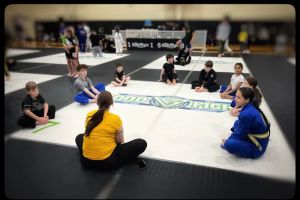
Budo Martial Arts Studio / budo martial arts studio
Ewing TownshipMercer CountyNew Jersey
9 Scotch Rd, Ewing Township, NJ 08628, USA
2- How Tae Kwon Do Fosters Problem-Solving Skills
Tae Kwon Do is all about precision, strategy, and adaptation, which are also core elements in problem-solving for engineers. In Tae Kwon Do, practitioners must anticipate their opponent’s moves and adjust their strategies accordingly—much like engineers who must evaluate and revise solutions to complex technical problems. The dynamic nature of Tae Kwon Do’s training can teach engineers to think on their feet, adapt quickly, and troubleshoot effectively.
Each move and technique in Tae Kwon Do requires the practitioner to assess the situation, consider the best approach, and execute with precision. Similarly, engineers must assess technical challenges, weigh different solutions, and implement the most effective one. This parallel between physical strategy and intellectual problem-solving is why many engineers find martial arts training valuable for sharpening their minds.

Motivate Martial Arts / motivate martial arts monroe ga
768 W Spring St, Monroe, GA 30655, USA
3- Similarities Between Engineering and Tae Kwon Do
At first glance, engineering and martial arts like Tae Kwon Do may seem worlds apart, but there are many surprising similarities. Both disciplines rely on:
- Structured Learning: Just as engineering follows structured methodologies, Tae Kwon Do follows a belt progression system, each level representing a deeper understanding of the discipline.
- Attention to Detail: Engineers must have keen attention to detail when designing systems, and similarly, Tae Kwon Do requires precise movements and technique. A small mistake in either can lead to failure.
- Continuous Improvement: In both fields, constant learning and refinement are key. Engineers continually update their knowledge and methods, just as martial artists refine their techniques through practice.
These shared elements make Tae Kwon Do not only an effective physical activity but also a mental workout that complements the skills needed in engineering.
4- Building Mental Discipline Through Tae Kwon Do
Mental discipline is one of the most important traits for an engineer. Whether dealing with tight deadlines or complicated problem-solving scenarios, having the mental toughness to stay focused is essential. Tae Kwon Do offers an excellent training ground for this skill, as it requires complete mental focus during practice. To excel in Tae Kwon Do, you need to stay mentally disciplined, pushing through challenges and staying composed even when things get tough—skills that can be easily transferred to the engineering world.
By engaging in the discipline of Tae Kwon Do, engineers can sharpen their focus and resilience, making them better equipped to handle the pressures of their work. This mental training can help engineers tackle difficult projects, stay organized, and maintain a clear mind under pressure.
5- Applying Tae Kwon Do Lessons to Engineering Challenges
The lessons learned from Tae Kwon Do can be applied directly to engineering challenges. Here are a few examples:
- Breaking Down Complex Problems: Just as Tae Kwon Do breaks down techniques into manageable components, engineers can break down large projects into smaller, more manageable tasks. This approach simplifies what might seem like an overwhelming challenge.
- Staying Calm Under Pressure: In Tae Kwon Do, practitioners are taught to stay calm and focused during sparring. This lesson is valuable for engineers when they need to manage high-stress situations and make quick, effective decisions.
- Adaptability: Whether on the mat or in the field, both engineers and martial artists must adapt to ever-changing situations. By learning to anticipate changes in Tae Kwon Do, engineers can be more flexible and responsive in their work.
Overall, the problem-solving skills developed in Tae Kwon Do can enhance an engineer’s ability to think strategically and remain focused in complex situations. Whether it’s tackling a technical issue or refining a design, the mental agility fostered through Tae Kwon Do can make a big difference in an engineer’s career.
If you’re interested in improving your problem-solving skills both on the mat and in the office, visit Jeuns TKD Hub to find the best Tae Kwon Do products and resources to get started!
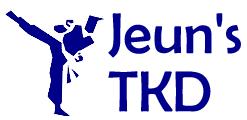
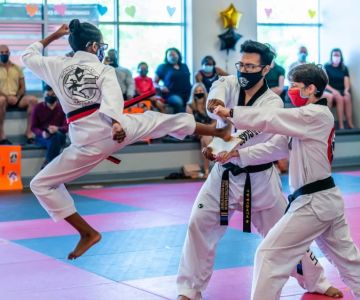
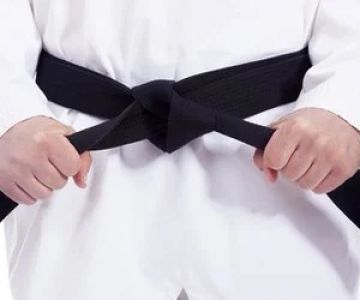
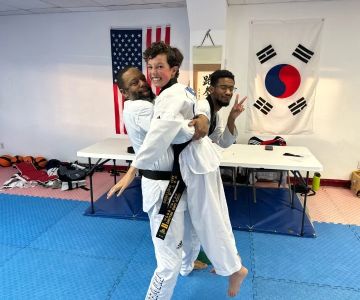
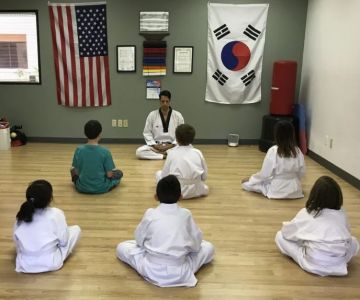
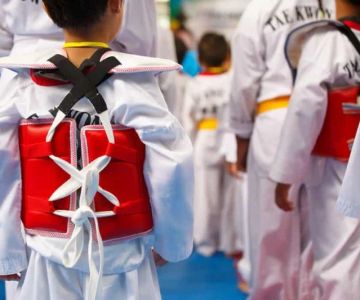
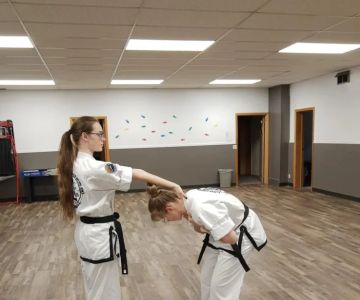
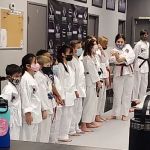 Core Fitness & Martial Arts4.0 (54 reviews)
Core Fitness & Martial Arts4.0 (54 reviews)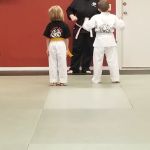 Valentin Karate Tribury5.0 (43 reviews)
Valentin Karate Tribury5.0 (43 reviews) Oriental Martial Arts College, World Headquarters4.0 (28 reviews)
Oriental Martial Arts College, World Headquarters4.0 (28 reviews) Tiger Claw4.0 (14 reviews)
Tiger Claw4.0 (14 reviews) Academy of Martial Arts4.0 (16 reviews)
Academy of Martial Arts4.0 (16 reviews) Tama Martial Arts - Dayton Kettering Martial Arts4.0 (232 reviews)
Tama Martial Arts - Dayton Kettering Martial Arts4.0 (232 reviews)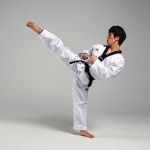 How to Execute a Jumping Roundhouse Kick to the Head
How to Execute a Jumping Roundhouse Kick to the Head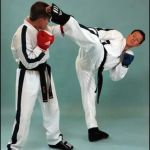 How to Execute a Double Kick Combination in Sparring
How to Execute a Double Kick Combination in Sparring How to Perform a Flawless Axe Kick: A Step-by-Step Guide
How to Perform a Flawless Axe Kick: A Step-by-Step Guide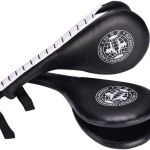 DIY Tae Kwon Do Training Equipment for Home Practice
DIY Tae Kwon Do Training Equipment for Home Practice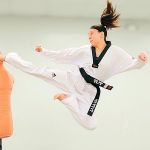 How to Increase Your Vertical Jump for Tae Kwon Do Flying Kicks
How to Increase Your Vertical Jump for Tae Kwon Do Flying Kicks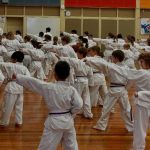 The History of the Tae Kwon Do Peace Corps
The History of the Tae Kwon Do Peace Corps